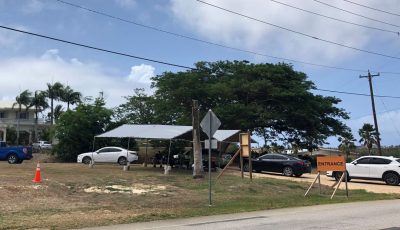Cultural spirit vs change
We have dealt with the difficult challenges of change that has soundly sent us reeling for sanity. Modern distractions leave us struggling to sift through it all. Fortunately, we’ve endured each storm, tethered strongly to our ancestral heritage.
We’ve weathered change head on or via adaptation—some good, some bad, and some sturdy in spite of it all. As changes occur, I quiz in quietude if the shifts aren’t simply eroding rather than edifying (improving) our way of life? I get a mixed bag on this score. But it’s all part and whole of social growth and development in what’s now a multicultural society.
Though every colonial ruler tried to crush our native tongue, none was successful. Our ancestors adapted submissiveness for purposes of survival, whispering their way in Chamorro through thick and thin. That’s the ancestral journey of our local vernacular retained by our ancestors even in submission.
Be that as it may, it’s unsettling watching our young people drift from tradition, specifically their indigenous values from what’s a part of them since birth. Slow the disconnect may be but like silent water rolling down the mountainside, it eventually erodes everything in its way.
Hopefully, the resurgence of indigenous issues would revive and restore the relationship we’ve had with our cultural tradition. It would be refreshing to see young folks promote everything from language to strengthening such social virtues as respect and the culture of responsibility.
It’s healthy to have personal knowledge of our long journey since four centuries ago. It brings home that sense of belonging that makes us whole and unique as a people. It is the spirit and sense of communal sharing that have served as pillars and foundation of our traditional heritage. It is our cultural spirit grounded in the tradition of responsibility that allows for harmony and the perpetuation of our peoplehood at peace with ourselves.
It’s all about understanding and appreciating our traditional history and conscious perception and vision of what lies ahead. With a strong anchor, we could resolutely define our future in spite of the demands of modernity. It’s about proactively engaging and participating in paddling and navigating our canoe of hope forward. It’s about reviving that unmatched sense of community that cements a journey in unity.
Derailing the demands of change may be, we are known for our resiliency and ability to reset our buttons come hell or high water. Let’s join hands for the journey has just begun. It boils down to our participation from A-Z.
Indigenous heritage
Since our ancestral days, islanders had only two things in their possession upon which was founded their cultural tradition: Land and sea.
We had an agrarian island community where we cultivated the soil and planted staple food, fruits, veggies and raise farm animals for sustenance. It was in family gardens, savannas, and shores where our ancestors sweated, even spilled blood to protect the future of posterity.
Their spirit is anchored in the land of these isles they guarded through centuries so we too could walk, cultivate, and protect them for our own children. It is this very spirit and relationship with our land that is difficult for non-islanders to understand. Nor is there any sense of empathy to acknowledge that it’s the only two assets we’ve had since time immemorial. Interesting the courage among us who have the gall to push for its complete abolition.
Must we now trash the very heritage of the indigenous people because we’ve learned via the Bill of Rights what it declares as a matter of right? Would not this raw attitude create a void forcing our children to yearn for that missing spiritual link trashed by their elders? Shouldn’t this alienating attitude be transcended in the interest of our children who equally deserve growth tethered to what they are since our ancestral days? Would not this be the most egregious thing we could do against the heritage they should cling to as a matter of ancestry?
Some say it’s unconstitutional. Whose definition should we use in this instance? Didn’t Uncle Sam grant our Native American brothers and sisters their right to own their land and limit ownership to their own people? Would not this fit the definition unconstitutional too? So what’s so egregiously wrong leaving landownership to fellow Americans who hail from an archipelago? Unless the right of Native Americans on land is changed in the name of full equality, Article 12 remains constitutional.
Of cultural spirit
I broached the issue of cultural spirit and responsibility if only to tickle your mind as we promote discussion amongst ourselves on the essence of our people. The former basically deals with home and would I still have intimate attachment to it down the stretch. The latter is one that we learn from our folks growing up.
It is here where I was born, grew up until I took my place in the community. It is along the shore, savannas, dusty roads, and rows of plants where my hard-earned sweat fell and dried off. It turns into a part of the soil downstairs where I buried and harvested bananas, taro, yam, sweet potato, and other plants for sustenance. It eventually disappears like morning dew when the sun beams down at midday. But my spirit rests peacefully in the dirt of sustenance we’ve cultivated for many years.
I struggle to understand the changes throughout the years. Concrete buildings now replace the land that once was the center of family sustenance. A huge warehouse now occupies the rich history of the land in CK where our roots were planted then destroyed about two decades ago. It’s gone! Has our precious value system changed as to ignore our cultural spirit?
John DelRosario Jr. is a former publisher of the Saipan Tribune and a former secretary of the Department of Public Lands.



























